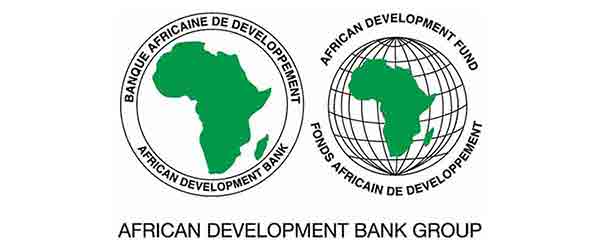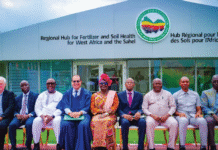The Sahel Alliance will hold its second general assembly in N’Djamena, Chad on Monday, 15 February 2021. The meeting will take place on the side-lines of a summit for the G5 Sahel countries— Burkina Faso, Mali, Mauritania, Niger, Chad—as well as France. The African Development Bank played an active role in the formation in July 2017 of the Alliance, an international cooperation platform to spur development and stability in the Sahel region.
To foster closer synergy with development partners, the Sahel Alliance has invited the African Development Bank to lead a working group on agriculture, rural development and food security.
The Bank’s extensive experience in the Sahel region in the management and control of water, agri-pastoral and fisheries development, as well as the sustainable management of natural resources, attracted it to the Sahel Alliance.
Agriculture and food security is of strategic importance to the Bank, which counts Feed Africa as one of its High-5 strategic priorities.
The Bank’s current Sahel portfolio includes three key projects aimed at strengthening the resilience of ecosystems and populations and ensuring food security through investment in agriculture and livestock farming as well as sustainable management of natural resources.
The Bank’s flagship Desert to Power solar initiative, valued at $20 billion will turn the Sahel region into the world’s largest solar zone giant solar zone with up to 10 000 MW of solar generation capacity. Eleven countries are beneficiaries of this initiative: Burkina Faso, Ethiopia, Eritrea, Djibouti, Mali, Mauritania, Niger, Nigeria, Senegal, Sudan and Chad.
Spanning Burkina Faso, Chad, Gambia, Mali, Mauritania, Niger, Senegal and the Inter-State Committee for Drought Control in the Sahel (CILSS), the Programme for Building Resilience to Food and Nutrition Insecurity in the Sahel (P2RS) advances resilience to climate change, long-term financing of the agricultural sector, and developing trade and regional integration.
By providing long-term sustained investment in building the resilience of Sahelian households, P2RS, which is mobilizing more than $250 million for its first phase and $750 million over 20 years, is contributing immensely to breaking the cycles of famine in the region. It also promotes the development of rural infrastructure and creates thousands of jobs for rural youth through the development of regional value chains and markets.
Another project that demonstrates the Bank’s commitment to the region’s development is the ongoing implementation of the Programme for the Rehabilitation and Strengthening of the Resilience of Socio-Economic Systems in the Lake Chad Basin (PRESIBALT), which covers Niger, Chad, Cameroon, Central African Republic and Nigeria.
The project, valued at approximately $70 million, provides skills enhancement training to young people to prepare, them for the local economy, thereby reintegrating vulnerable members of society in a region plagued by political insecurity and extreme weather. PRESIBALT also provides socioeconomic support to women and youth
The Bank is also implementing a third major initiative – the Integrated Development and Adaptation to Climate Change Programme (IPCCP) — to strengthen the populations of the Sahel.
With a budget of more than $205 million, the IPDCDC, which covers Benin, Burkina Faso, Cameroon, Chad, Côte d’Ivoire, Guinea, Mali, Niger, Nigeria and the Niger Basin Authority, will directly benefit about four million people, 51% of them women, between 2019 and 2024.
Through an integrated and inclusive approach, the IPDCDC will recover 140,000 hectares of degraded land and construct 209 hydraulic structures for agri-pastoral and pisciculture activities. It will implement 450 sub-projects to help develop the agricultural chain and create 184 small and medium-sized enterprises (SMEs) run by young people.
In addition, more than 100,000 households will be strengthened to adapt to climate change. The scheme will also operate a financing mechanism for sustainable natural resource management activities in the Niger River Basin.
SOURCE
African Development Bank Group (AfDB)









